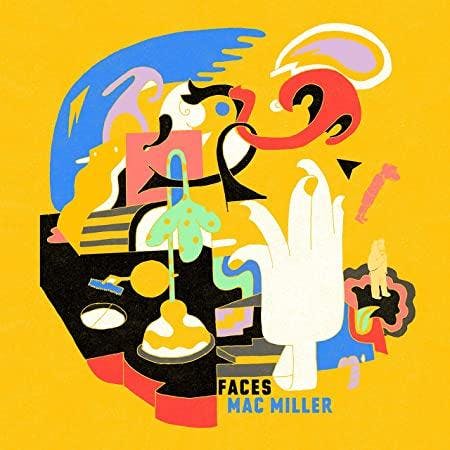
Remembering Mac Miller
Remembering Mac Miller
Published Tue, September 7, 2021 at 12:40 AM EDT
I wish I could take a time machine back to 2011.
I’m 13 years old, it’s the beginning of the blog era, and MTV’s "AMTV" woke me up every morning. Watch the Throne's “Otis” blares out of my television speakers as I roll out of bed every morning. I was sure something like Drake and Rihanna’s “Take Care” or Lil Wayne’s “6 Foot 7 Foot” would play next. It didn’t. Instead, it was a 19-year-old from Pittsburgh rapping about smoking weed and finally making it on “Kool-Aid and Frozen Pizza.” It was a young Mac Miller. I was hooked the moment I heard the intro. He rapped on the instrumental of Lord Finesse's “Hip 2 Da Game” with confidence, delivering each bar immaculately, drawing the listener in with his magnetic charisma.
From that moment on, I was hooked. I looked him up all over the internet, checking out every mixtape and interview he put out up until that time. His K.I.D.S mixtape changed my life. I was taken aback by Mac’s authenticity. For the same reason, I appreciated the era’s other emerging stars like Kendrick Lamar, Joey Bada$$, and Tyler, the Creator; Mac had radiant energy of creativity and realness. He was just dope.
My obsession with Mac was carried throughout high school. With albums like Macadelic and Watching Movies With The Sounds Off, Mac proved to be more than just the “frat rapper” critics accused him of being in his early tapes.
The rapper was incomparable at a young age. His authentic artistry translated into his lyrics and delivery. Always vulnerable, Miller often opened up about his battles with addiction and depression. Using each release as a journal for how he is feeling at the time. On songs like “Red Dot Music” and “Fight the Feeling” explore Mac’s struggle with sobriety amid his rise to fame.
For Miller, honesty was the center of his creativity. Using music as a medium of self-expression. In an interview with Vulture, Mac opened up about his writing process and the reason for his honesty.

“My goal is to try to make this shit the most of a reflection of who I am.”
- Mac Miller
DROP YOUR EMAIL
TO STAY IN THE KNOW
Faces might be Miller's most honest project to date. Each song is a look into the rapper's tormented brain. Tapping into every emotion and thought as the rapper experiences his lowest lows and the highest of the highs.

Mac was spitting on this album like never before. Keeping up with the likes of Rick Ross, Earl Sweatshirt, and TDE's Ab-Soul and Schoolboy Q. Miller's blood flowed through his pen on the project. Writing some of the most intensely personal verses of his career.
Faces was so jarring. A deep dive into the thoughts and feelings of a man that gained the whole world and lost his soul in return.
Looking back on the rollout of the album, leading with the 808 heavy trap inspired single, "Diablo", Mac showed lyrical fortitude. His hunger and energy matched perfectly with the lyrical vibrato on track.
But this confidence would be no preview for what was to come on the album.

The album featured psychedelic production with dark lyrical undertones. Mac explores his darkest thoughts, relationships with loved ones, and his longing for acceptance while on the road of self-destruction.
On tracks like "Polo Jeans" "Angel Dust", "Apparition" Mac gets real about depression and anxiety as he tries to self medicate with substance abuse and retail therapy.
On the almost uncomfortably transparent track "Malibu," Mac gets vulnerable about his drug use. The title references the time he spent with Rick Rubin in his Malibu home as the iconic producer helped Mac as a sobriety coach as he hit his rock bottom.
In a 2015 interview with XXL, Miller opened up about his relationship with Rubin as he helped him on his journey to sobriety.
“Rick Rubin was someone that was really instrumental in helping me get to a better place,” Miller explained. “I didn’t go to rehab. I went to Rick Rubin’s house. I was in Europe --- and I just called him like, 'I’m really wasted, and I need you to help me.' So I got a house in Malibu, literally around the corner from him for the summer,” he continued. “We just really hit it off and built a good relationship. He just really has a positive state of mind. I think there’s people in the industry that will take someone who’s fucked up on drugs and will try to milk that person for everything they can. Then there’s people that understand that you need good soil for something to grow.”
Miller admitted to not being sober during the recording of the album. Often being heard, smoking, snorting, or coughing on the intros and background on certain tracks on the album. “I was not on planet earth when I made Faces. Nowhere close.”
I was 16 when the album was released. Going through my phase as an angsty rebellious teen dealing with my own battles of self-destruction and uncertainty, Mac Millers’ transparency and authenticity resonated with me.
He was a voice for everyone batting the demons of depression, anxiety, and substance abuse, all while longing for love and acceptance.
Miller continued his vulnerable writing style in his following projects exploring themes of happiness and redemption on GO:OD AM, finding love on The Devine Feminine, losing love in Swimming, and growth with his final album Circles.
As we reach the third anniversary of Mac Miller’s untimely death, the Pittsburgh emcee is survived through his deeply personal songs, spirited creativity, and genuine love for the culture and the art he offered the world.
Thank you for your contributions to our culture and all the great music you have given us in your career. Forever Mac Miller.



